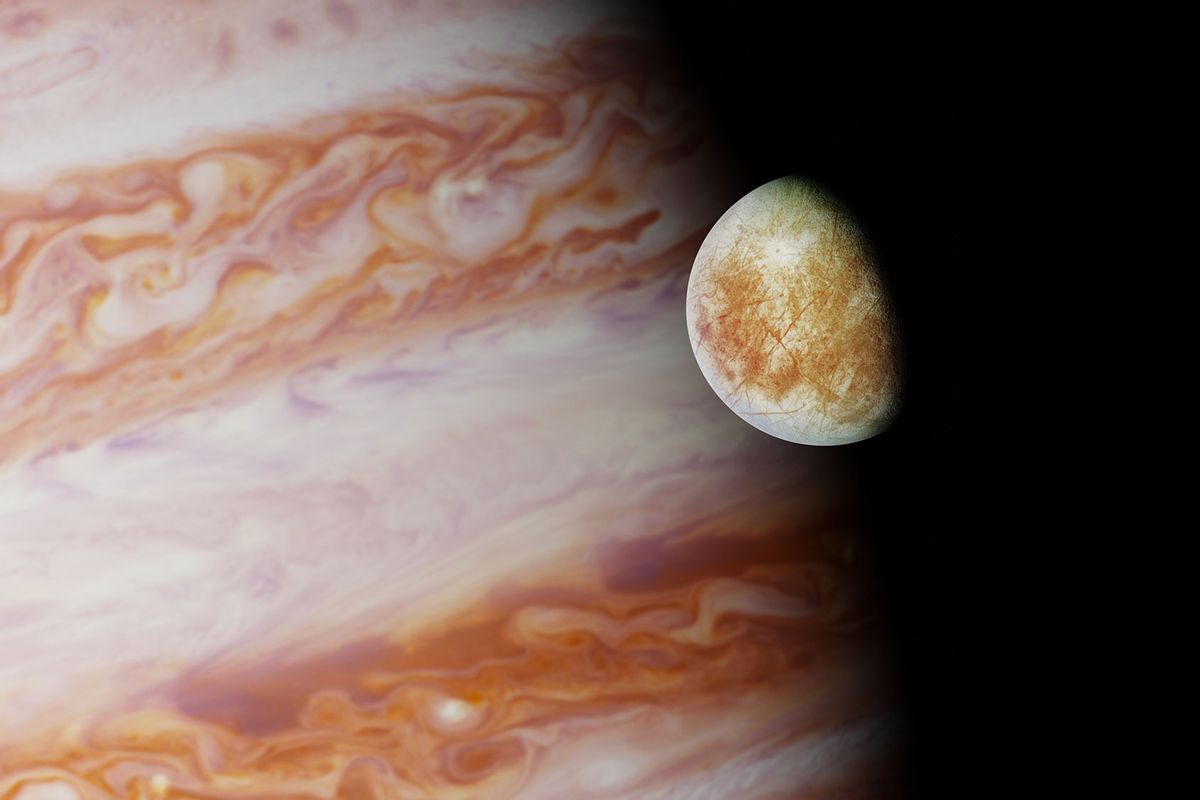As far as candidates for nearby worlds that may contain life, Jupiter's frosty moon Europa is one tantalizing place for scientists to look. Astrobiologists speculate that alien life forms could reside in Europa's icy crust and the massive ocean that churns underneath. Yet these prospects appear somewhat less likely in light of a recent study by the journal Nature Astronomy, which finds that Europa has much lower amounts of oxygen — an element essential to all known forms of complex life — than previously thought.
It all comes down to the question of Europa's atmosphere: How many pounds of molecular oxygen per second does it produce? Scientists had previously estimated that Europa created anywhere from a few to over 2,000 pounds per second. As it turns out, the amount of is a meager 26 pounds per second.
The data comes straight from Juno, a NASA probe that passed by the Jovian moon in September 2022 — within 220 miles, or so close that the spacecraft "directly sniffed" its Europan surroundings, explained lead author James Szalay of Princeton University to The Guardian. After crunching the numbers, experts in ice chemistry were surprised that there was so little oxygen available. "We didn't realize is that Juno's observations would give us such a tight constraint on the amount of oxygen produced in Europa's icy surface," Szalay added in a statement.
While the dearth of oxygen may bode poorly for complex life, there are bacteria and other microscopic organisms that can survive without oxygen and are therefore known as "anaerobic" life forms. Because an ocean is believed to exist for miles under Europa's crust, there could be vast ecosystems of microbes thriving just beneath humanity's peering gaze. We probably won't know more until after the Europa Clipper mission launches later in October 2024.



Shares